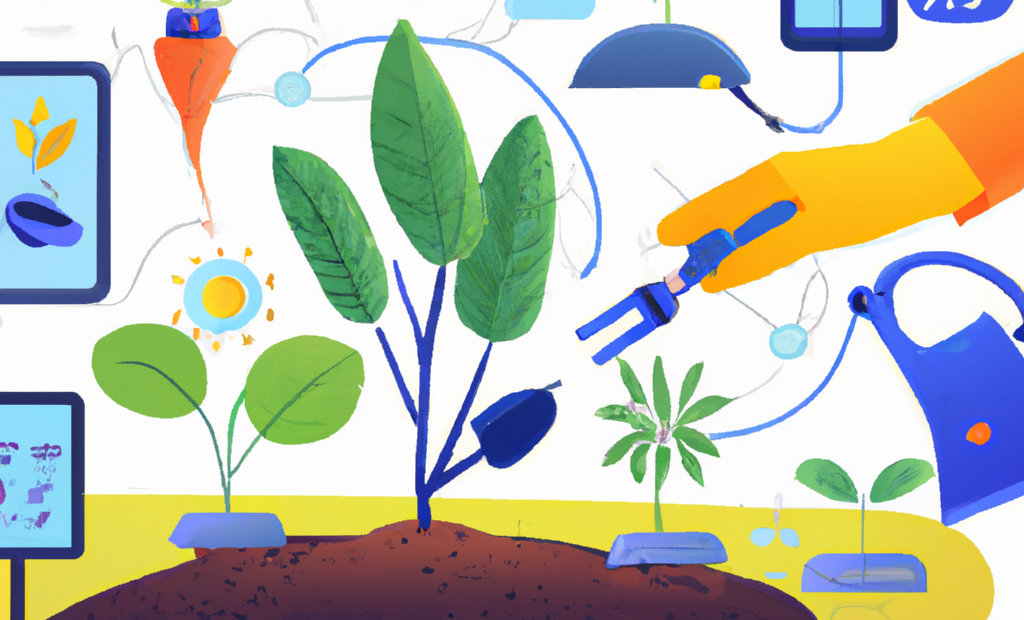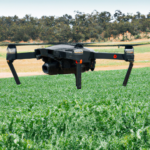The text highlights the importance of technology in monitoring the impact of fertilizers and biofertilizers on human and environmental health. Technological advances allow for more effective monitoring of health risks and promote safer and more sustainable organic farming practices. Technology also plays a crucial role in managing plant diseases, improving detection and treatment of diseases. Furthermore, the combination of biofertilizers and technology can improve soil health, plant resistance and prevent diseases transmitted by contaminated food. Overall, technology and organic farming improve the productivity and quality of agricultural products, contributing to a more resilient agricultural ecosystem.
In a world increasingly reliant on technology, it is only logical that technology is also incorporated into disease monitoring and prevention, particularly those related to agriculture. This article breaks down how the integration of technology can change the way we approach human health in the context of agriculture, with a specific focus on the impact of fertilizers and organic farming practices. Through dedicated sections exploring the use of technology to monitor the impact of fertilizers on human health, the intersection of organic farming and emerging technologies for disease tracking, the role of biofertilizers and technology in disease prevention, and how agricultural products and technology can collaborate for effective disease monitoring, this article provides a comprehensive look at the future of agricultural disease monitoring. With the help of technology, we are one step closer to cultivating a healthier future.
- 1. "Using technology to monitor the impact of fertilizers on human health."
- 2. "Organic farming: Emerging technologies for disease monitoring."
- 3. "Biofertilizers and technology: A new approach to disease prevention."
- 4. "Agricultural products and technology: Effective monitoring of related diseases."
1. "Using technology to monitor the impact of fertilizers on human health."
Technology has played a crucial role in monitoring the impact of fertilizers on human health. Through advanced monitoring and data analysis systems, it is possible to identify and track the presence of fertilizer chemicals in various sources that can affect human health, such as water and food. In addition, technology has also facilitated the promotion of organic farming, a farming method that uses biofertilizers and other agricultural products that are less harmful to the environment and human health. These technological advances, therefore, not only allow for more effective monitoring of the health risks associated with conventional fertilizers, but also promote more sustainable and safer agricultural practices.
2. "Organic farming: Emerging technologies for disease monitoring."
Organic farming is increasingly in the spotlight due to its contribution in creating a healthy and sustainable environment. Part of this attention is focused on the integration of emerging technologies for disease monitoring in crops. Technological innovations are changing the way farmers manage plant diseases, providing more accurate and efficient methods to detect and treat problems. These technologies can monitor plant health and detect early signs of disease, allowing farmers to act quickly to prevent further damage. Furthermore, using agricultural products such as biofertilizers and organic fertilizers instead of synthetic chemicals can improve soil health and plant resistance to disease. Therefore, the combination of advanced technology and organic farming practices can play a vital role in the sustainable management of plant diseases.
3. "Biofertilizers and technology: A new approach to disease prevention."
The integration of biofertilizers and technology represents a new approach to disease prevention in both humans and plants. In the era of organic farming, biofertilizers, which are fertilizers derived from living organisms, are emerging as a sustainable alternative to chemical fertilizers. In this context, technology can be used to monitor the efficacy of these biofertilizers in preventing diseases in crops. Furthermore, technology can also help analyze and predict the occurrence of diseases based on various environmental and biological factors. Furthermore, through the use of specifically designed agricultural products, the efficacy of biofertilizers can be enhanced. This comprehensive approach not only promotes healthier and more sustainable agriculture, but can also contribute to the prevention of foodborne diseases.
4. "Agricultural products and technology: Effective monitoring of related diseases."
The integration of technology in disease monitoring has had a significant impact on various fields, including agriculture. In particular, agricultural products have evolved thanks to technology, allowing for more effective monitoring of related diseases. Advances in technology have allowed for the development of more effective fertilizers and biofertilizers that can help improve soil health and prevent the spread of diseases. Furthermore, the adoption of organic farming practices, supported by disease monitoring technologies, can help identify and treat plant health problems early and effectively. This not only improves the productivity and quality of agricultural products, but also contributes to a more sustainable and resilient agricultural ecosystem.
The integration of technology in disease monitoring has proven to be a key element for the effective prevention and control of agriculture-related diseases. It is evident that the use of technology has allowed for more accurate monitoring of the impact of fertilizers on human health, providing valuable data that can guide public health decisions and policies. Furthermore, emerging technologies are instrumental in organic farming, allowing for more efficient disease monitoring and promoting healthier and safer practices. The role that biofertilizers and technology play in disease prevention is notable, illustrating a new approach to agriculture that is both proactive and preventative. Finally, agricultural products and technology have come together to provide effective monitoring of related diseases, improving the safety and well-being of consumers. In short, technology has become an indispensable tool in disease monitoring and prevention in the agricultural environment.


